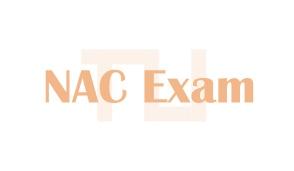
On of the strategies used by NAC examination candidates when faced with distressed Standardized Patients (SP), is to deliver empathy that match to the emotional intensity the candidate is confronted with. In other words, if the SP are speaking gently, you should be speaking a little more gently; if they speak even quieter or softer, then the candidates would so so.
As a clarification, if you are performing an abdominal examination and the patient/actor winces, you must react accordingly by verbally acknowledging their discomfort, modifying your technique, and then checking that it is okay to continue. This is essential for this OSCE examination. In addition, during a past medical history taking when asking about cardiac system, if you find the SP coughs and looks away as though upset for an instance, you will need to get the hint that you would better stop the cardio-vascular question set that your are going through and pay attention to the patient. SP are following a script and is being expected by the examiner who is giving the scoring after, whether you get the extra marks depends on not missing this hint. Thus, a successful NAC candidate would switch on his empathic and caring style of conversation and would focus on what is the hidden and relevant event that has occurred to the SP and the SP would start guiding you to their paragraph of event(s).
If a SP on one of NAC examination stations slumps their shoulders, then you need to modify your sitting position accordingly. The point is that you are mirroring their change in stance. If the SP uses higher tone or lower tone while speaking, you would mirror this and uses higher and lower tones, respectively, while trying to figuring out in your hind thinking if the patient has a hearing problem or if he is getting emotional. Thus you will exude authority and gain their trust.
The advantage of mirroring body language is evident in NAC candidates who have anxiety show or appear in their own body language, for instance, picking their hair; playing with their jewelry; touching their body or clasping their fingers. In these circumstances, you need to appear calm and relaxed during the station to enable the SP to mirror you. NAC candidates' body language needs to be rehearsed and honed, by practicing, while filming themselves or under supervision. Thus the body language would become second nature and require minimal to no mental effort during the NAC OSCE station. It may be agonizing to watch ones own performance when it is filmed, but this is the other way of gaining knowledge of ones own baseline performance, the other way would be an experienced examiner who is his/her sole function is to guide the candidate through their feedback.
